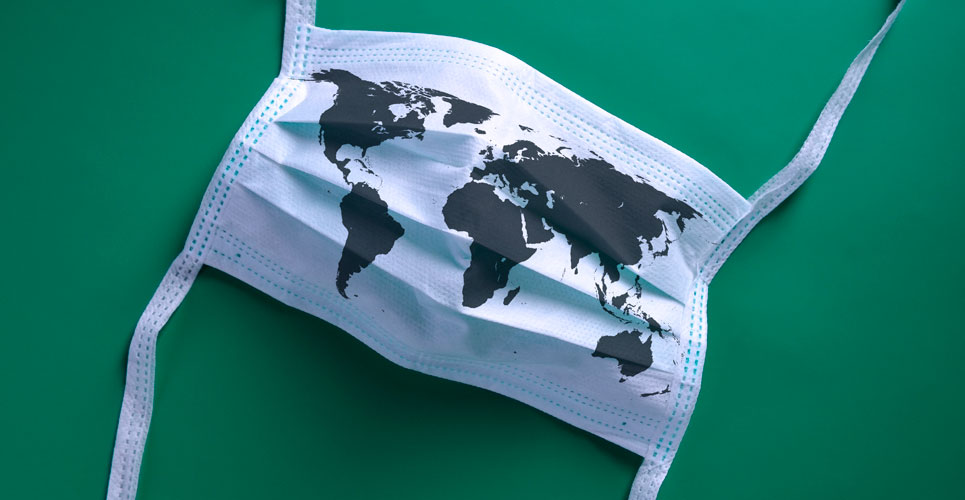The global hospital pharmacy community has been facing enormous challenges due to the Coronavirus pandemic, says Tiene Bauters PharmD PhD, Ghent University Hospital, Belgium.
We are still collectively in an unprecedented situation, and experiencing a great challenge, for which we had very limited time to prepare.
We were faced with numerous hurdles, the most major of which was access to drugs. As hospital pharmacists, we need to guarantee the availability of essential drugs in particular, which was a great challenge, especially in those countries that were heavily affected by the pandemic, such as Italy and Spain.
These not only included drugs needed in intensive care units such as anaesthetics, antibiotics and muscle relaxants, but also other supportive care drugs such as analgesics, respiratory, anticancer and cardiac drugs and large volumes of fluids and parenteral nutrition.
Higher demand (everyone needed the same drugs at the same moment) and issues such as transportation and export barriers between the different countries, a lower production capacity and, in some cases, supply problems for drugs and/or their active ingredients aggravated the situation enormously. In certain regions, treatment options became more and more limited.
On the European level, actions have been taken to support the availability of drugs used during the COVID-19 pandemic. European countries were encouraged to collaborate Europe-wide and to adopt measures such as monitoring and allocation of stock levels for drugs needed for COVID-19 patients to the need of the national hospital pharmacy associations. An up-to-date knowledge of the situation was paramount to safeguard and ensure adequate distribution of stocks among the different hospitals based on the patient capacity and drug usage.
A joint statement on the treatment of COVID-19 was published by the European Association of Hospital Pharmacists (EAHP) together with the European Association of Senior Hospital Physicians, the European Society of Clinical Pharmacy and the European Society of Oncology Pharmacy (ESOP), highlighting the growing problem of essential medicines encouraging physicians and pharmacists to closely monitor and evaluate emerging clinical and research data.1
These shortfalls also applied to the productionof medical devices, masks, personal protective equipment, oxygen cylinders and disinfectant hand gels.
As pharmacy staff often meet many patients or other healthcare providers daily, various precautions have been taken in the pharmacies to reduce the risk or spread of infection and protective measures were implemented.
We were acutely aware of the responsibilities and of being fortunate to be in a position where one can directly make a difference. It is amazing that in such a short period of time, pharmacists have been able to adapt to the current situation and to find solutions, while also preparing for ‘the worst case’.
Guidelines were developed, strategies to mitigate drug shortages for specific drugs were implemented and pharmacy staff and technicians were trained in a very short period of time, leading to an intense collaboration within the healthcare system, different disciplines and specialty areas (infectious diseases, critical care, etc), sharing expertise and acting as one team.
National and international organisations commenced educational sessions, and resources such as webinars have been developed (European Society for Blood and Marrow Transplantation, the International Society of Oncology Pharmacy Practitioners, ESOP, etc), focusing on topics related to pharmaceutical care and drug management (role of hydroxychloroquine, role of statins, ibuprofen and ACE inhibitors in relation to COVID-19, coagulopathy in COVID-19, and many more) and much literature has been published to keep everyone up to date with the latest scientific evidence.
Many of us started working remotely and rounding the wards ‘virtually,’ which required a lot of creativity in working with the team. Digital technologies and telehealth allowed us to continue meeting with other staff members or committees within the hospital. While home-working, some had the additional pressures of home-schooling their children, a combination that is not easy.
The COVID-19 pandemic has rapidly changed how we live, work and learn, and there is no doubt that this will influence our professional and personal lives in the long-term. While some parts of the world are very slowly recovering from the pandemic and others are still in the middle of it, we look ahead to the development of vaccines, although concerns regarding a second wave of the pandemic or the dissemination of the virus that could
persist for some time are likely.
Whether living with COVID-19, social distancing and quarantine will be the new norm is hard to predict and no one knows so far. However, we do know that we will need to continue to collaborate and work creatively. We are all in this together.
Reference
www.eahp.eu/press-room/joint-statement-european-association-hospital-pharmacists-european-association-senior (accessed May 2020).

